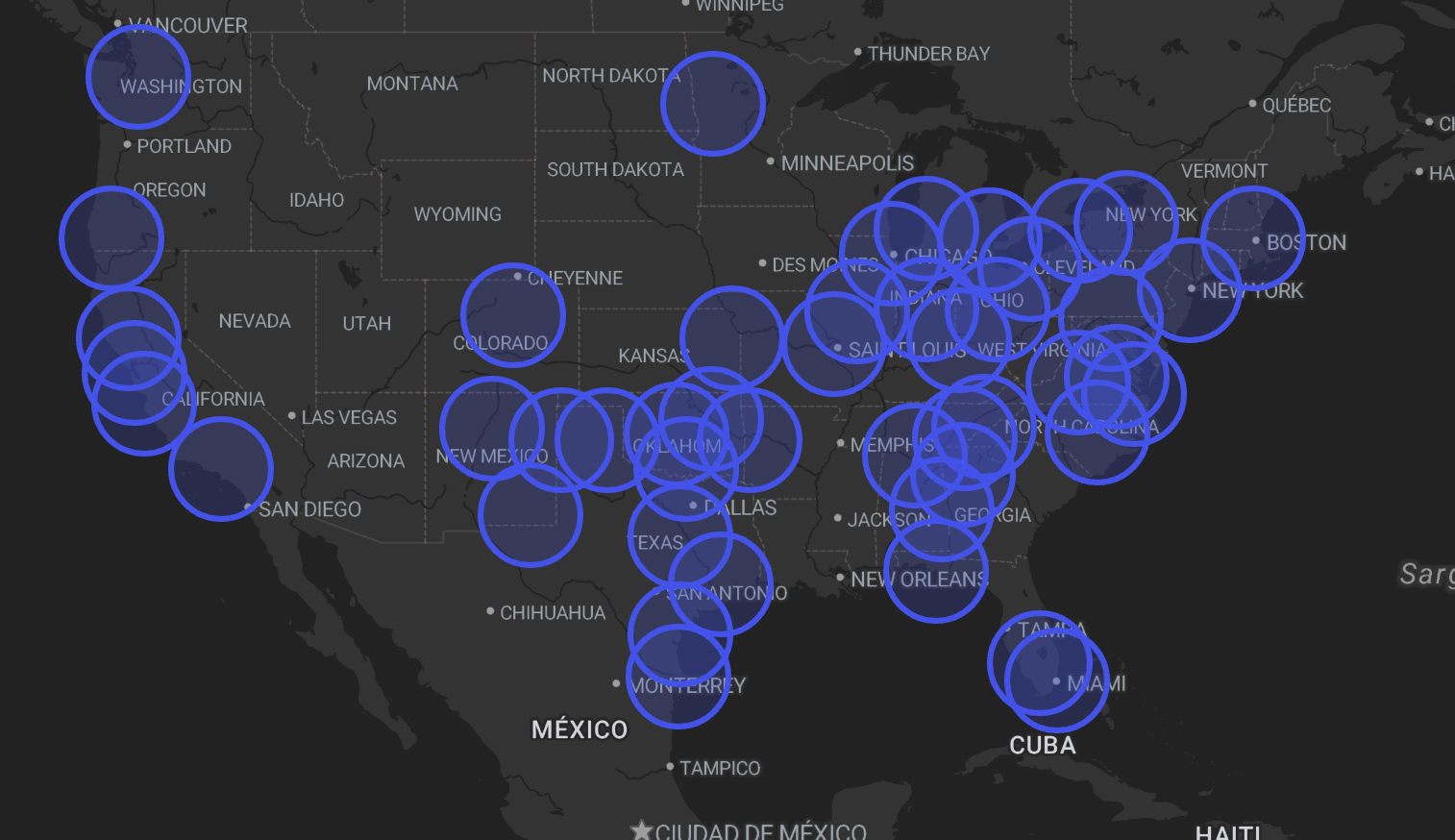- 109 Posts
- 908 Comments

 0·3 days ago
0·3 days agoLooks like things have changed:
Will my registration expire?
No, your registration will never expire. The FTC will only remove your number from the Registry if it’s disconnected and reassigned, or if you ask to remove it.
https://consumer.ftc.gov/articles/national-do-not-call-registry-faqs

 14·3 days ago
14·3 days agoIt’s re-posted from a news community, where it was since removed for not being from an acceptable news site. Unfortunately, the acceptable news sites covered this more than 30 days ago, which disqualifies their articles regardless of whether they were ever posted to the community. shrug
I couldn’t find a better article in the time I had to spare, so I re-posted this one. I think what’s important in this case is just that word gets out. I don’t see anything misleading about this one, and the EFF link (which is also not exactly a news site) is plainly visible.

 39·5 days ago
39·5 days agoMatrix messaging apps. It’s nice to have modern messaging features, end-to-end encrypted, with no single point of failure, no Google involvement, and no phone numbers. I expect to start recommending it widely when the 2.0 features land in the popular clients.
WireGuard VPN. It’s fast, even on low-power devices.
Self-hosted Mumble. Excellent low-latency voice quality for chatting or gaming with friends.
Radicale, DAVx⁵, and Thunderbird, for calendar and contact sync between mobile and desktop, without handing the data over to Google or anyone else.
Thorin has my respect for building his own machine.
I hope he saves the box for you.

 23·8 days ago
23·8 days agoCloudflare is a provider that you can choose to have as a part of your own infrastructure.
Indeed.
man in the middle implies “attack”
That can be a convenient shorthand if the parties in a discussion agree to use it as such in context. For example, in a taxonomy of cryptographic attacks, it would make sense. It is not the general meaning, though, at least not a universally accepted one. Similarly, “counter” does not imply “counter attack”, unless we happen to be discussing attack strategy.
More to the point, nothing that I wrote misrepresents the situation as was claimed by that other person. If I had meant attack, I would have said attack. Rather, they made a leap of logic because I (like most of my colleagues) don’t happen to follow a convention that they like, and picked a fight over it. No thanks.

 110·8 days ago
110·8 days agoYou’re conflating MitM,
Heh… It’s safe to assume I’m well versed in this topic.
You’re going to have to prove any of your claims, or else I am just going to assume you’re talking out of your ass.
I am not, however, inclined to indulge rudeness. Bye bye.

 128·8 days ago
128·8 days agoIt bugs me when people say Cloudflare is a MitM, because that is a disingenuous representation the situation.
No, it is a clear description of what is happening: Instead of https keeping the traffic encrypted from user to service, it runs only from user to Cloudflare (and then in some cases from Cloudflare to service, although that’s irrelevant here). The result is that a third party (Cloudflare) is able to read and/or modify the traffic between the two endpoints. This is exactly what we in mean in cryptography discussions by man-in-the-middle.
You can decide that you don’t mind it because it’s not a secret, or because they haven’t been caught abusing it yet, but to say it’s not a man-in-the-middle is utter nonsense.
and you opt into it.
No, the service operator opts in to it, without consulting the user, and usually without informing them. The user has no choice in the matter, and typically no knowledge of it when they send and receive potentially sensitive information. They only way they find out that Cloudflare is involved is if Cloudflare happens to generate an error page, or if they are technically inclined enough to manually resolve the domain name of the service and look up the owner of the net block. The vast majority of users don’t even know how to do this, of course, and so are completely unaware.
All the while, the user’s browser shows “https” and a lock icon, assuring the user that their communication is protected.
And even if they were aware, most users would still have no idea what Cloudflare’s position as a middleman means with respect to their privacy, especially with how many widely used services operate with it.
To be clear, this lack of disclosure is not what makes it a man in the middle. It is an additional problem.
it cannot be a MitM because both sides of the connection are aware of this layer.
This is false. Being aware of a man in the middle and/or willingly accepting it does not mean it ceases to exist. It just means it’s not a man-in-the-middle attack.

 1·9 days ago
1·9 days agoMy condolences. Unfortunately, people are sometimes designated the in-house expert on a thing just because they seem slightly less ignorant of it than anyone else in the organization. That leaves more than a few people making decisions that impact security and privacy without good understanding or sound judgment in those areas.
Maybe you should train up and become your state’s new security expert?

 495·9 days ago
495·9 days agomusic group IFPI complained that while Cloudflare discloses the hosting locations of pirate sites in response to abuse reports, it doesn’t voluntarily share the identity of these pirate customers with rightsholders.
“Where IFPI needs to obtain the customer’s contact information, Cloudflare will only disclose these details following a subpoena or court order – i.e. these disclosures are mandated by law and are not an example of the service’s goodwill or a policy or measures intended to assist IP rights holders,” IFPI wrote.
So the corporations enjoying enormous profits from other people’s work are unhappy that Cloudflare doesn’t make it easy for them to circumvent due process. What a surprise.
(I’m generally not a fan of Cloudflare, because its man-in-the-middle position between users and services has grown to an unhealthy scale, making it ripe for dragnet surveillance and other abuses. But it would be even worse if it was actively helping these greedy, predatory corporations dodge the law.)
They’re not saying it was unavoidable random chance. That’s not what perilous means.
They’re saying the consequence of the choice is peril, and they seem to agree with you about the would-be dictator:
He showed us in his first term and in the years after he left office that he has no respect for the law, let alone the values, norms and traditions of democracy. As he takes charge of the world’s most powerful state, he is transparently motivated only by the pursuit of power and the preservation of the cult of personality he has built around himself.

 7·11 days ago
7·11 days agoThis is one of the more important reasons to minimize dependencies and be very picky about the ones we adopt.

 7·12 days ago
7·12 days ago“Welcome to the dark side of cozy.”

 401·12 days ago
401·12 days agoWhen I’m driving, it’s actually unsafe for my car to be operated in that way. It’s hard to generalize and say, buttons are always easy and good, and touchscreens are difficult and bad, or vice versa. Buttons tend to offer you a really limited range of possibilities in terms of what you can do. Maybe that simplicity of limiting our field of choices offers more safety in certain situations.
Or maybe being able to consistently and reliably operate the thing without taking your eyes off the road has something to do with it? Hmm… Yes, this is really hard to generalize.

 33·12 days ago
33·12 days agoSeems to me that would overstep the authority of the president’s office, and be an attack on national security.

 8·14 days ago
8·14 days agoApple offered a Ms. Pac-Man port on these devices for a while, and it was surprisingly good.

 0·14 days ago
0·14 days agoCloudflare has a long track record of not abusing that position, though.
Well, Cloudflare is not all that old, so I would say it has a medium-length record of not getting caught abusing that position. But that’s not the point.
The point is that most Lemmy users’ actual browsing is in fact not private between them and their server. Many instances have a big network services corporation like Cloudflare watching everything read or written by every user, so that info is available to anyone with sufficient access or influence there, like employees and governments.
That applies to most of the internet,
Not exactly, but it does apply to a great many of the biggest web sites, so we could say it applies to much of the internet’s traffic.
And that’s part of the problem. Cloudflare is in a position to watch much of what people do on the web, across many unrelated sites and services (often including domain name lookups), and trivially identify them. This includes whatever political, religious, or NSFW posts they’re reading on Lemmy, and who they are when they log in to their bank accounts.
In any case, I replied not to be pedantic, but just to let our community know that they shouldn’t assume their reading habits on Lemmy are safely anonymized behind a made-up username, or confidential between them and their instance admins. If your instance uses a provider of DDOS protection or HTTPS acceleration, as many big instances do, then the walls have ears.

 0·14 days ago
0·14 days agoYour actual browsing of lemmy is moderately private, provided you trust your server.
Not exactly. Many of the big instances have Cloudflare (or similar) sitting between you and the server, providing the HTTPS layer while watching everything you read and write on Lemmy. In cryptography circles, we call this a man-in-the-middle.
Your instance (sh.itjust.works) is one such instance, by the way, as is lemmy.world.















You might start with the documents posted to the EFF site over the past year. For example, the September opposition letters include specific court decisions and put them in context, including commentary from law professors.
https://www.eff.org/search/site/pera